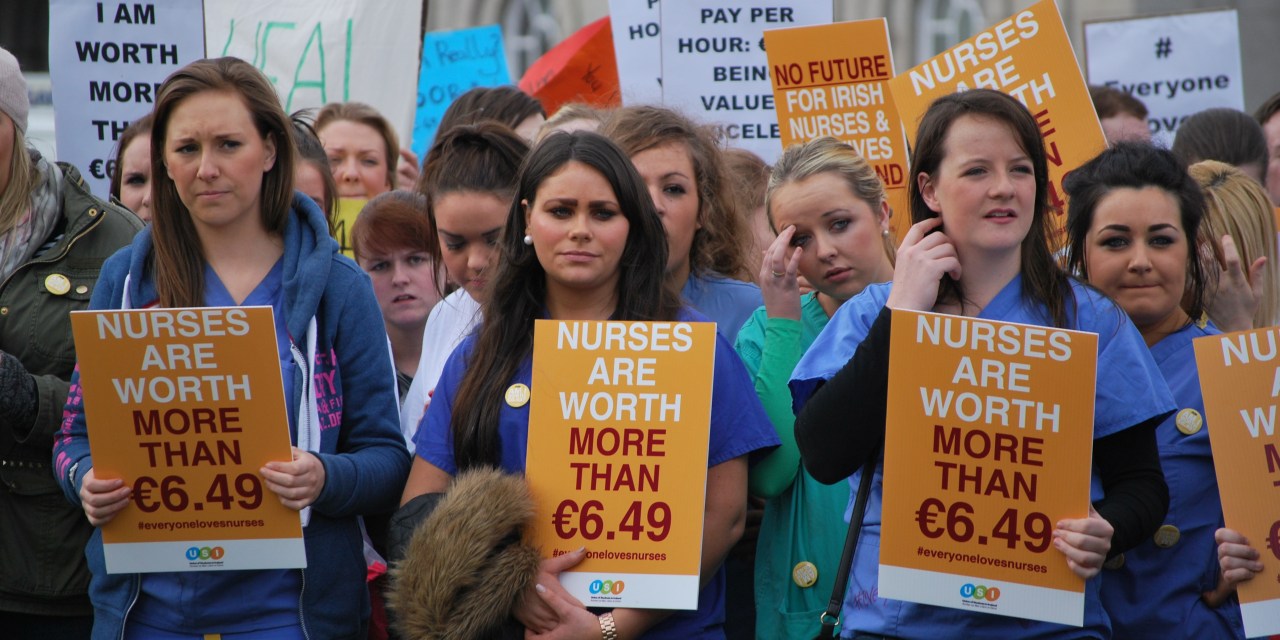The current pandemic situation has brought us all to a standstill. It is at times like this that we truly realise the value of our frontline staff: the various nurses, doctors and other healthcare workers who are going out to face this everyday. Imagine for a second that you’re in this position, imagine how worried you’d be, going into work everyday, afraid that you’d fall ill. Now imagine that you’re not even being paid for this work.
Historically, there has always been a discourse around student healthcare staff and lack of pay. In the case of student nurses, they are put on placement, where the vast majority of their work consists of the same duties of that of a healthcare assistant, except they are not paid as they are told that “this is part of a learning process”. While it may be true that they are not qualified nurses yet, after every nursing student has completed their first year of their degree they are eligible to apply to work as a healthcare assistant, and many do. Why is the expectation there that students should do the exact same work under an ethos of learning, for no benefit other than experience?
On March 26, Minister Simon Harris announced that student nurses would be paid for their work, and students were sent a link through which they could sign up for the HSE and be placed in areas relative to their location to avoid travelling long distances, which facilitates students who may have had to move home. Internship students have had their pay raised to match that of a healthcare assistant, and it seems like a relatively good solution to the nursing students’ problems.
If you were to ask any person, the majority of them are in favour of paying student nurses. All one has to do is simply look at the tirade of comments left on articles discussing the issue before pay for student nurses was secured. There was outrage. People were in shock that the government would even consider sending unpaid students out. It would be exploitative.
“Why is the expectation there that students should do the exact same work under an ethos of learning, for no benefit other than experience?”
Even though this issue didn’t start with the pandemic, it seems that it was the public outcry directed toward the government that kickstarted the movement for student nurses to be paid. With this outbreak, there has been a cultural shift in terms of how we view our healthcare staff as a whole. People have come to realise how non-expendable our healthcare staff are, and it would only be expected that after the pandemic eases, there will be greater calls for pay rises. It has been a long road for student nurses to get compensation outside of their internship, and now that it is finally here it begs the question: what’s going to happen when this is all over?
Healthcare staff are under immense pressure at the moment and it is only fair that we do all we can to relieve that pressure. The question of why it took a global pandemic to turn the government’s attention to the HSE is a discourse that is best not to dwell on right now. It has shown that while there was an ability to compensate students, it just took a global crisis for it to happen. In a few months down the line, when this is hopefully all over, what is going to happen? Will the government deem that the risk that student healthcare staff face outside of a pandemic is not high enough? Will the public outcry that propelled the government into action resort back to the nonchalant ‘it’s what you signed up for’ attitude that seemed to exist just a few months ago?
“People have come to realise how non-expendable our healthcare staff are, and it would only be expected that after the pandemic eases, there will be greater calls for pay rises.”
With all the other economic changes that this situation has brought, it would only seem fair that some sort of compensation for student nursing staff remains. It is great that the student nurses are being paid and it is bad that it took a horrible situation for it to happen. If we go back to a reality where student nurses aren’t being paid for doing a day’s work, there will be huge disillusionment in the nursing community. If student nurses are not paid for doing what they would be doing given ‘normal’ circumstances, we must ask, is that work somehow of less value than the work that was carried out during the pandemic? Is there a certain threshold of need that the government requires before they consider compensating their student healthcare staff? One would hope not.
Only time will tell. Optimistically, there will be a shift in the way we value our student nurses. This movement may pose its own problems, as student nurses aren’t the only student healthcare staff that have suffered under this exploitative system. Perhaps it is time to re-examine the way we utilise and support our student healthcare staff. It has been a long fight for the student healthcare population, and that fight is far from over.






